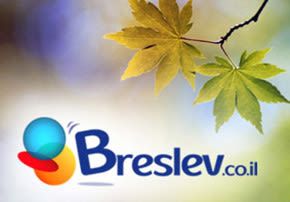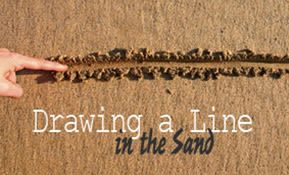
Toldot: Open Your Eyes!
Although the newspapers report otherwise, blindness is one of the greatest problems facing contemporary society. Undiagnosed by sociologists...

Although the newspapers report otherwise, blindness is one of the greatest problems facing contemporary society. Undiagnosed by sociologists, untouched in academia, people don't understand what they are seeing. Westerners grow up with their minds plugged in, rather than turned on, discarding truth to embrace the fleeting physical pleasures of modern society. Why would anyone choose (to quote my grandmother) a candy bar over a steak dinner? Only a person blind to reality -or a vegan – could make such an error.
In this week’s parsha, Yitzchak tried (unsuccessfully, thank G-d!) to bless on his eldest son, Esav. Why would a man of such lofty spiritual heights choose to bless the evil Esav over Yaacov – the Torah scholar and tzaddik?
The Torah states, “It came to pass when Yitzchak was old, and his eyes were too dim to see" (Breishit 27:1). He was blind, therefore he blessed Yaakov.
According to the Mishnah, Yitzchak’s blindness was not due to his old age, but the result of his looking at Esav. In Strive for Truth, Rabbi E. E. Dessler explains that the reason Yitzchak loved Esau was because he closely identified with him, his more earthly son. Yitzchak had successfully struggled to overcome his own physical nature, therefore he understood Esau’s battle with physicality.
Yitzchak’s strongest middah, attribute, was the middah of gevura, strict justice. Therefore, he wanted to bless the son that was seemingly most in need of Divine help. Yitzchak recognized Yaacov’s greatness and therefore concluded that he did not need his blessing as much as his older brother, Esav. Yitzchak did not realize, however, that Esav had already lost the battle with his yetzer hara, the inner aspect that compels us towards evil.
What made Yitzchak blind? He was biased; he imposed his own perspective on the situation. Because Yitzchak loved Esav and had such a strong relationship with him, he was blinded to the fact that Esau was not worthy of receiving the blessing. If a man as great as Yitzchak could become blind by subjectivity, we must recognize that we, too, can easily fall into the same trap.
How do we stay clear of the blindness crippling modern society? Through understanding that we tend to desire the things that are most familiar to us. Many people understand that G-d's Oneness is obvious and logical, yet would rather bury their head in the comfortable sand of familiarity than seek truth. The Ramchal explains in Derech Hashem (The Way of G-d) that man naturally gravitates toward his physical side, and only through lifelong toil in Torah can he rise to the challenge set forth by the Creator. It is up to us to open our eyes to truth, and fight the blindness imposed on us by those who want to live their lives for purely physical, fleeting pleasure.
Seek Your Own Path
One of the most perplexing questions I had when I was first exposed to Torah Judaism had to do with what looked like a national dress code. I wondered if it just pure coincidence that every Jewish man across the globe prefers white shirts and dark suits. Eventually, I discovered that what seemed like a uniform approach to life was the foundation of something that I can only describe as extraordinary.
In this week’s parsha, we find two diametrically opposed ideologies born from the same a mother. Although the Torah does not mention Yaacov and Esav’s childhood, Rabbi Samson Raphael Hirsch points out that the two boys received the exact same Torah-true education. While this upbringing provided Yaakov with the tools for spiritual growth and development, it proved detrimental to Esav.
Esav exhibited more physical energy than his younger brother, Yaakov. Had Yitzchak and Rivka channeled Esav’s potential properly, the two brothers could have remained spiritually and physically at peace, lending their unique talents to bringing G-dliness into the physical world.
Although Yitzchak and Rivka did not succeed with Esav, Yaakov became a spiritual giant, the heir to the Jewish nation. The same upbringing yielded opposite results!
Each individual is unique. It is up to us to find that unique spark – within ourselves, as well as within our children – and develop it, to discover our own spiritual greatness.
While the goal of connecting the physical world to the Divine is uniform for the entire Jewish nation, the descendants of Yaakov could not be more diverse. As no two Jews are the same, each individual’s contribution is unique. Therefore, it’s our divine duty to discover our essence and bring our talents and unique personality into our avodas Hashem, our service of G-d. One word of caution, however. The drive for spirituality must remain firmly rooted in the halacha, in Torah law, otherwise it can lead to dangerous paths. Yet, the Torah guidelines are broad enough for us to build a unique path of meaningful growth.
While Jews around the world recite the same prayes, abide by the same halacha, and even dress in a similar fashion, it in no way detracts from the distinctiveness of the individual. It is an error to view the Jewish people as millions of musicians playing the same instrument. Rather, we are a grand orchestra, international and eternal in scope, blending together to create a stunning symphony.
When I started my path to Torah-true Judaism, I saw uniformity. I thought that everyone had to play the same instrument. Eventually, I discovered that despite the outward similarities, here I would best find my unique path to individuality.











